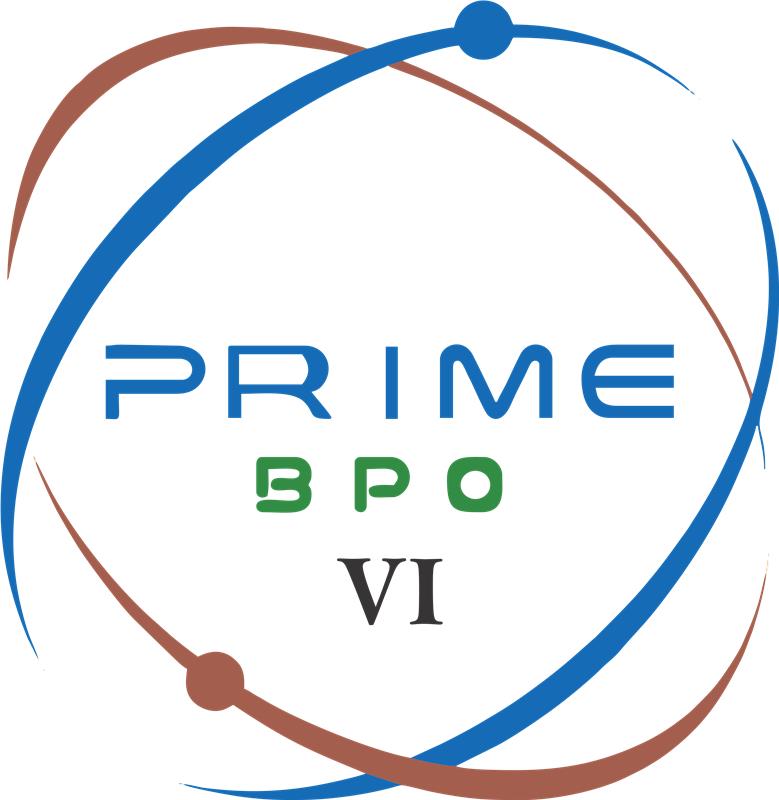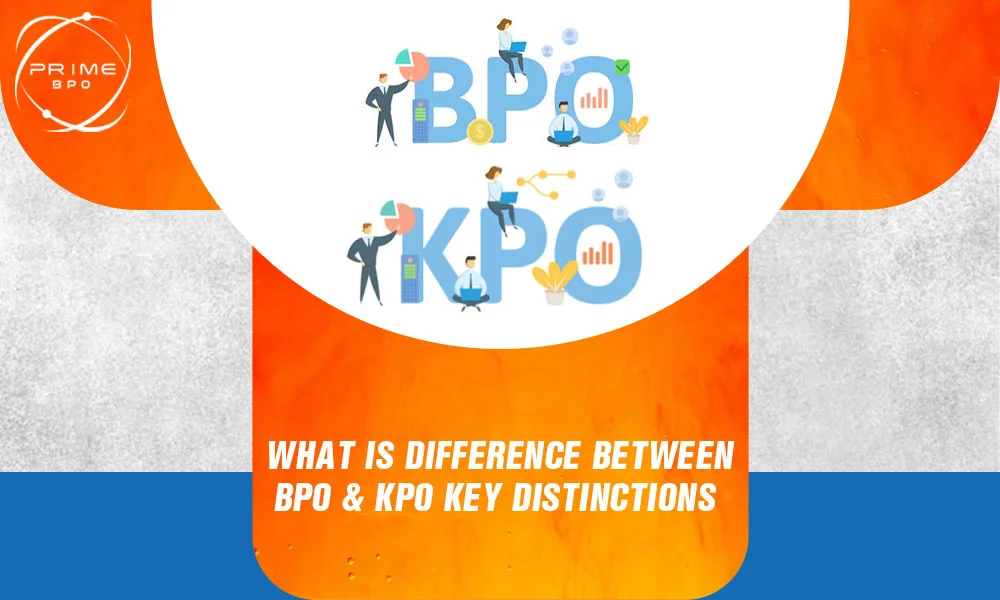If you're considering an outsourced call center, you might be wondering whether a BPO or KPO call center is best for your organization. In this post, we explore the concepts of BPO and KPO and discuss the key Difference Between BPO and KPO. BPO and KPO are two types of outsourcing that companies often employ, particularly when it comes to call center operations. While BPO call centers handle processes on behalf of a client, KPO call centers are involved in the handling of information, knowledge, or data on behalf of a client company. KPO call centers are an offshoot of BPO call centers, and they're utilized often when an organization requires a high level of specialized expertise. Here's what you need to know about BPO and KPO call centers.
What is BPO?
BPO stands for Business Process Outsourcing. It refers to the exercise wherein organizations lease external companies to control unique operations or offerings, which are generally carried out in residence. This can consist of anything from customer support and accounting to HR and IT offerings. Companies pick out BPO to keep prices, enhance efficiency, or advantage knowledge that is only sometimes available internally.
Get Free Quotes
Customized Options Await
Types of BPOs
Nearshore Outsourcing
This involves outsourcing enterprise approaches to businesses in neighbouring nations. For instance, a U.S. Employer outsourcing to Mexico or Canada. Nearshore outsourcing can provide blessings like comparable time zones and cultural affinities, which facilitate smoother communication and collaboration.
Offshore Outsourcing
This kind refers to sending work to companies in ways-off countries, typically to capitalize on cost benefits and get entry to a larger hard work pool. Common offshore outsourcing locations consist of India, the Philippines, and Eastern Europe. The foremost draw is great fee savings, despite the fact that it is able to include challenges like language boundaries and unique running hours.
Onshore Outsourcing
Also referred to as domestic outsourcing, this involves hiring carrier carriers in the same Pakistani Provinces to address business sports. This type may cost more than offshore or nearshore, but the advantages of fewer language issues and cultural variations often lead to fewer misunderstandings and smoother project management.
Understanding those outsourcing options enables agencies to select the fine method primarily based on their precise wishes, balancing elements like fees, verbal exchange, and the complexity of the tasks being outsourced.
Benefits of Business Process Outsourcing (BPO)
Outsourcing business procedures has become a strategic approach for plenty of organizations aiming to grow efficiency, cut charges, and raise awareness of their core competencies. Here's a deeper take look at the multifaceted advantages that BPO can provide to companies:
1. Contribution to Performance and Efficiency
- BPO providers specialize in the services they offer, ensuring that non-core tasks are handled more efficiently than they might be in-house.
- Tasks are managed by experts trained specifically in those functions, which can lead to faster turnaround times and higher quality of output.
2. Financial and Cost Savings
- Outsourcing can significantly lower costs by reducing the need to hire and train specialized staff, not to mention the reduction in overhead required to house them.
- It allows companies to budget more effectively, allocating resources to other areas of the business.
3. High Flexibility
- Businesses can scale their operations up or down without the logistical nightmares of hiring and layoffs, adapting quickly to changing market conditions.
- Companies can quickly adjust the level of staffing or resources from the BPO provider depending on current business needs.
4. Focus on Core Business Functions
- Outsourcing non-core tasks allows management to focus on building and strengthening their core business processes.
- Resources that would otherwise be spent on non-core functions can be redirected towards areas with the greatest return on investment.
5. Better Results in Non-Core Areas
- BPO firms are often more efficient at handling non-core tasks than the business itself, leading to better results in areas like customer service and IT.
- Outsourced experts bring specialized knowledge and technology which can significantly improve the quality of non-core business activities.
6. Improved Operational Efficiency
- BPO providers continuously improve their processes, which means you benefit from the latest practices in efficiency.
- By outsourcing certain functions, companies can streamline operations and focus on eliminating waste across the board.
7. Access to Innovative Technology at Low Cost
- BPO firms invest in the latest technology to stay competitive, giving their clients access to innovations without the hefty price tag of purchasing these technologies outright.
- Without any additional investment from their clients, BPO providers keep their technologies up to date, ensuring they remain on the cutting edge.
Business Process Outsourcing not only facilitates groups to reduce prices and improve efficiency, but it also permits them to harness understanding, generation, and improvements that they may not have had access to in any other case. This strategic use of external sources can allow companies to be aware of their core targets, adapt greater speedy to changes within the marketplace, and enhance common overall performance.
What is KPO?
Knowledge Process Outsourcing (KPO) is a subset of Business Process Outsourcing (BPO) that entails outsourcing duties usually requiring specialized know-how and understanding. Unlike traditional BPO, which focuses greater on normal or administrative responsibilities, KPO emphasizes information-in-depth approaches that require an excessive diploma of analytical and technical talents as well as desire-making abilities.
Key Characteristics of KPO:
- High-value Services: KPO deals with core business activities that demand advanced analytical and technical skills.
- Specialized Knowledge: Employees in KPO firms are often highly qualified in specific fields such as engineering, finance, business analysis, or data analytics.
- Decision Making: Unlike BPO, KPO services involve processes that require judgment and decision-making.
Types of KPOs (Knowledge Process Outsourcing)
Knowledge Process Outsourcing (KPO) entails outsourcing tasks that require excessive-level knowledge and talent. Here are some not-unusual kinds of KPO offerings:
1. Market Research
- Involves gathering, analyzing, and interpreting information about a market, about a product or service to be offered for sale in that market.
- Helps businesses understand their target market, the competition, and the effectiveness of marketing strategies.
2. Data Analysis
- Includes mining data from various sources, analyzing patterns, correlations, and trends to support decision-making processes.
- Critical for making informed decisions based on statistical and factual information rather than intuition.
3. Legal Services
- Outsourcing legal services such as legal research, documentation, drafts of statutes, and legal compliance advice.
- Provides access to legal expertise without the need to maintain an in-house legal team, reducing costs and enhancing flexibility.
4. Financial Services
- Includes financial analysis, investment research, risk management, and accounting services.
- Helps companies manage their finances efficiently, ensure compliance with financial regulations, and make strategic investment decisions.
5. Content Development
- Involves creating content for various platforms such as websites, blogs, and marketing materials.
- Ensures high-quality, engaging content tailored to meet SEO standards and marketing goals, enhancing brand visibility and engagement.
Each form of KPO provider offers wonderful blessings and may be tailor-made to satisfy the particular desires of companies, letting them leverage specialized information in a price-powerful manner. Whether it's through gaining insights from marketplace studies, making statistics-pushed decisions, handling legal requirements, overseeing monetary fitness, or developing compelling content, KPO services can appreciably contribute to a company's achievement and aggressive advantage.
Get Free Quotes
Customized Options Await
Benefits of Knowledge Process Outsourcing (KPO)
Knowledge Process Outsourcing (KPO) offers sizeable benefits to groups seeking to decorate competencies without compromising on efficiency or increasing prices. Here's how KPO can be beneficial:
Access to Specialized Talent
- Expertise On-Demand: KPO allows companies to tap into a pool of highly specialized professionals from around the world without the need for long-term commitments.
- High Skill Levels: These experts bring deep knowledge and experience in specific fields, ensuring high-quality outcomes for complex tasks.
Access to Advanced Technology
- State-of-the-Art Tools: KPO providers invest in cutting-edge technologies to stay competitive, giving clients access to the best tools without hefty investments.
- Innovation: Leveraging these technologies can lead to innovative solutions and processes, improving product development and business strategies.
Get Free Quotes
Customized Options Await
24-Hour Operations
- Time Zone Advantages: With teams located in different parts of the world, work can continue around the clock, speeding up turnaround times and enhancing productivity.
- Continuous Support: This ensures that customer service and critical operations can run 24/7 without interruption.
Access to Global Markets
- Market Expansion: KPO providers can offer valuable insights and entry strategies into new markets.
- Local Expertise: They often have local knowledge that can significantly reduce the risks and barriers associated with entering foreign markets.
Improved Work Efficiency
- Process Optimization: KPO firms specialize in streamlining complex processes, which can lead to more efficient workflow systems.
- Reduced Errors: High expertise leads to fewer mistakes and higher precision in tasks.
Increased Scalability and Flexibility
- Scale Operations Quickly: Businesses can scale up or down without the typical constraints associated with hiring or layoffs.
- Adaptability: Flexibility to respond quickly to market changes or operational demands.
Substantially Lower Operational Costs
- Cost Reduction: Outsourcing high-skill tasks can be more cost-effective than developing in-house capabilities.
- Reduced Infrastructure Investment: Saves on the cost of infrastructure and technology which the KPO provider already has in place.
KPO gives a compelling strategy for agencies aiming to leverage international knowledge and knowledge at the same time as managing charges and specializing in center capabilities. It now not only complements operational efficiencies but additionally gives businesses the agility to navigate and develop in the competitive worldwide market.
Difference Between BPO and KPO
|
Key differences |
BPO |
KPO |
|
Involves |
Back office or front office operations – data entry, customer care, finance and accounting, transcription, website services, HR support and payroll processing |
Knowledge based – market research, equity research, legal process management, medical content & services and education and publishing |
|
About |
Size and volume and efficiency |
Depth of knowledge, experience and judgment |
|
Services |
Low-end |
High-end |
|
Employee qualification |
Basic qualification with expertise in process |
Skilled employees with expert knowledge |
|
Based on |
Rules |
Judgment |
|
Driven by |
Volume |
Insights |
|
Relies on |
Cost arbitrage |
Knowledge arbitrage |
|
Process |
Pre-defined |
Requires application and understanding of business |
|
Complexity |
Less complex |
Highly complex |
Major Difference Between BPO and KPO
BPO and KPO may seem similar, but there are some distinct Difference Between BPO and KPO, such as:
- BPO is based on a set process and rules; KPO is based on the knowledge, expertise and judgment of the personnel.
- BPO is less complex, is driven by volumes and requires the expertise of the process. In contrast, KPO is more complicated, requires expertise in knowledge and deals with insights, experience and expertise.
- BPOs hire employees that have basic education, strong communication skills and general computer knowledge. On the other hand, KPOs need employees who are highly skilled and professionally qualified.
- The focus of BPOs is on low-level processes and peripheral activities of the organization, whereas KPOs deal with knowledge, information and high-level processes.
- BPO employees have a monotonous routine and set targets, whereas KPO employees provide insights, speculate, forecast and may even report directly to the client.
As we wrap up about Difference Between BPO and KPO. Both BPOs and KPOs are beneficial in numerous ways for any company considering outsourcing. Which one you choose will be based on the type of business you have and what specific jobs you wish to outsource. The skill level and training required for your purposes will likely be the deciding factor in your decision between a BPO or KPO.
References:
https://callminer.com/blog/bpo-vs-kpo-call-centers-which-is-best-for-your-call-center
https://www.managedoutsource.com/resources/what-is-kpo-how-is-it-different-from-bpo/
https://callcenterstudio.com/blog/what-is-bpo/
https://pexly.com/blog/customer-care/bpo-vs-kpo-what-is-the-difference/






